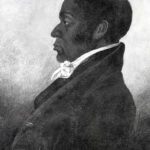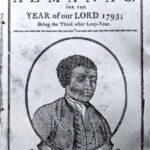In 1791, Benjamin Banneker, an African-American publisher and mathematician, wrote a letter to Thomas Jefferson about slavery. Jefferson was the United States Secretary of State. Banneker’s original purpose was to give Jefferson a copy of his annual almanac, but Banneker addressed issues regarding the rights of different races. Banneker was proud to admit his African heritage, but he was not a slave. Banneker wanted Jefferson to acknowledge the inhumanity of the institution of slavery, say it was morally wrong, and should not be a part of the culture of the United States. Knowing that Jefferson was a fair leader, Banneker urged Jefferson to explain how slavery could be tolerated in the United States, which was supposed to be a place of equality. He disapproved of Jefferson’s remarks that Africans were inferior to whites. Banneker stated that there was great hypocrisy in the Declaration of Independence. Banneker found little evidence that the phrase “all men are created equal” applied to all men in the United States.
New Jersey Student Learning Standards:
- 6.1.8.CivicsPI.3.a: Cite evidence to evaluate the extent to which the leadership and decisions of early administrations of the national government met the goals established in the Constitution.
- 6.1.8.CivicsDP.3.a: Use primary and secondary sources to assess whether or not the ideals found in the Declaration of Independence were fulfilled for women, African Americans, and Native Americans during this time period.
- 6.1.8.CivicsHR.3.b: Evaluate the impact of the institution of slavery on the political and economic expansion of the United States.
- 6.1.8.CivicsHR.3.c: Construct an argument to explain how the expansion of slavery violated human rights and contradicted American ideals.
- 6.1.8.HistoryUP.3.a: Use primary sources as evidence to explain why the Declaration of Independence was written, and how its key principles evolved to become unifying ideas of American democracy.
Curriculum
- 3 Sections
- 3 Lessons
- Lifetime
- Stage 11
- Stage 21
- Stage 31





